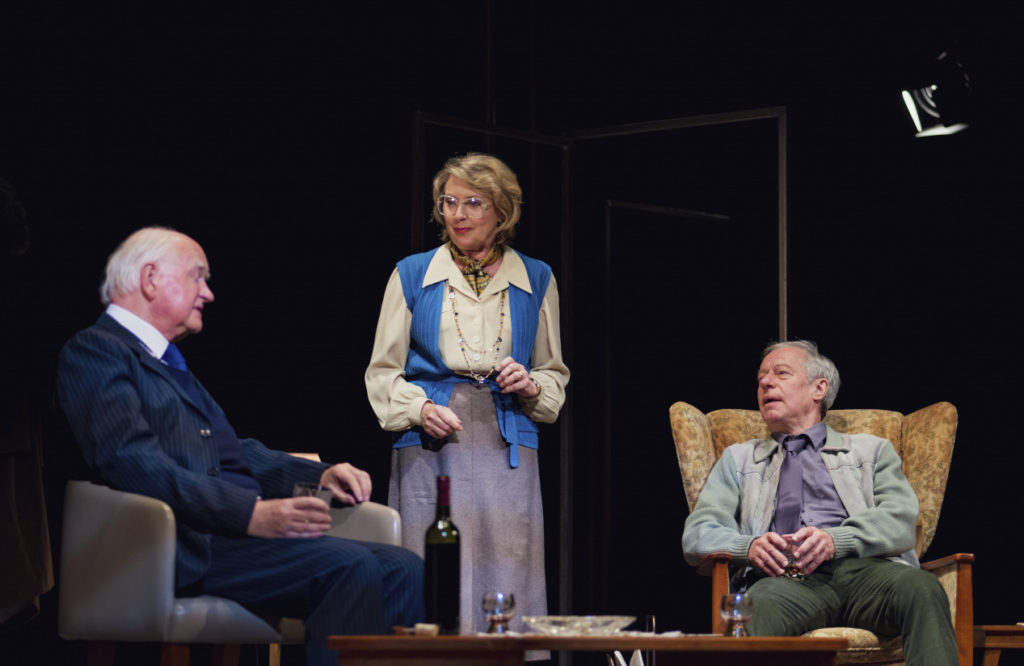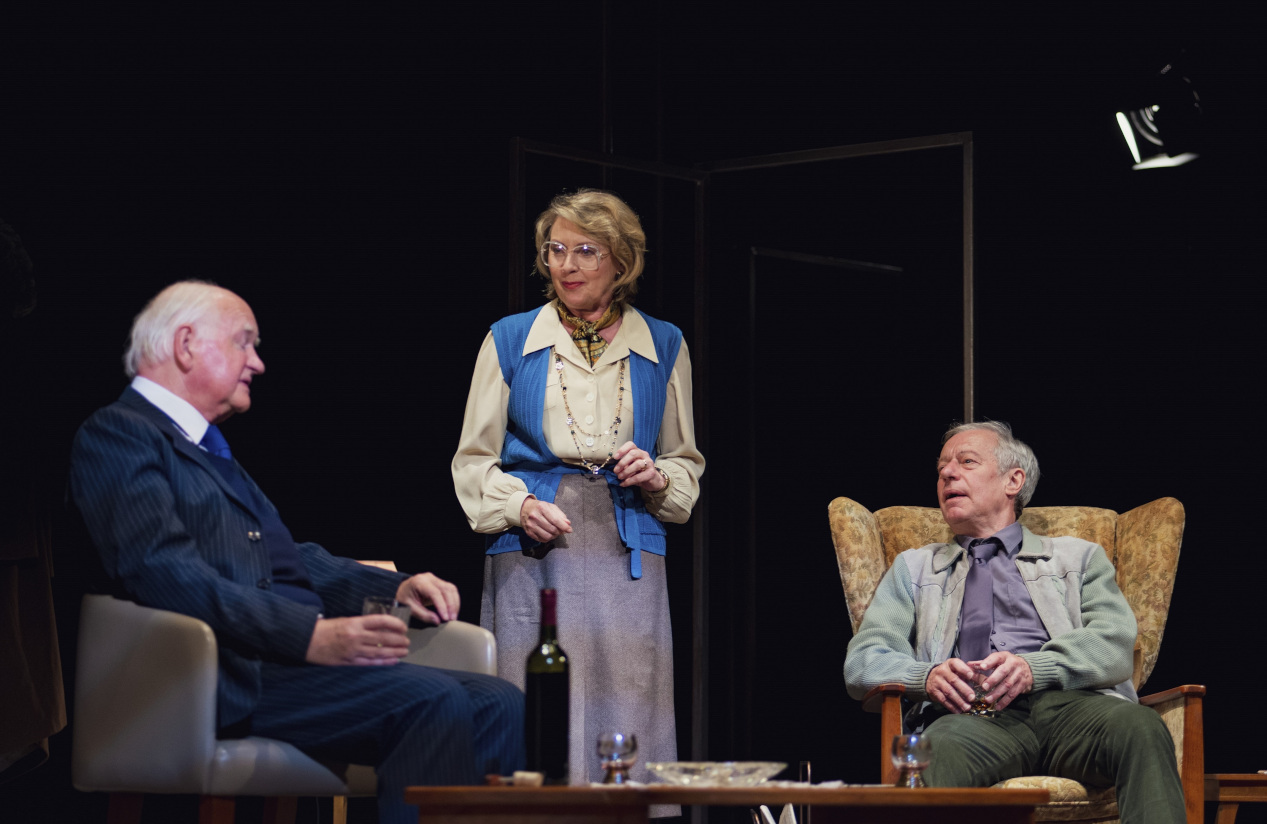
It is February 15th, 1987. Graham Greene, celebrated novelist and former MI6 agent, is on a visit to a Peace Conference in Moscow. It is the era of Mikael Gorbachev’s ‘Perestroika’ – a general thawing of East-West relations. While he’s in town, who better to look up than his old MI6 supervisor and friend, Kim Philby, who had defected to Moscow in 1963 after being outed as a Soviet agent, one of the so-called Cambridge Five, a spy ring which passed information to the Soviet Union during World War II and the beginnings of the ‘Cold War’.
35 years have passed since their last encounter, and Greene has a store of questions for his former colleague. Ben Brown’s play imagines the conversation that could have taken place at Philby’s Moscow flat that cold and snowy evening, one in which Greene seems determined to understand Philby’s motivation. But is there something else on the agenda?
Stephen Boxer plays a withdrawn, depressed but resolute Philby, a man isolated from friends and family by his past double-dealings, now a devotee to his Russian vodka with little time left to live, but comforted by his partner Rufa (Karen Ascoe) who gives the production considerable lift during her brief interlude with Greene while Philby does the washing-up.
Oliver Ford Davies plays the softly scrutinising Greene, who at first seems to be goading Philby to open up about his life, like a less-smiley, older version of Eamon Andrews compering an edition of This Is Your Life. The drink flows. Philby relaxes slightly, “what’s the harm, we’re both old men now.” But always suspicious, Philby turns the questioning back onto Greene.
Ford Davies and Boxer effectively weave a little paranoia into the proceedings. Was Greene really here simply as Philby’s friend and apologist or could there be a darker motive? An echo of the fate of journalist Jamal Kashoggi haunts this play. Ben Brown plays the two men off each other like a chess match. Who was still in the game after all? Could one ever leave it? In a world where both sides know the truth, to say it aloud isn’t following the rules.
As Philby repeatedly fills the glasses, the old spies examine each other’s internal moral compass. The nature of their business is laid bare, but the personal and national loyalties and betrayals haven’t dimmed either’s affection and respect for one another. Philby’s support of the Russian cause is exposed as ruthless, knowingly sending young men to their certain deaths when it suited an outcome – in Graham Greene’s own words: ‘the splinter of ice in the heart of a writer but an icicle in the heart of a spy.’ As a fellow artist in deception, Philby reveals one last surprise for his friend Greene. Suddenly, the discomfort in the room seems to cross the floor. Political tectonic plates are shifting outside.
Brown allows Philby’s conscience some resolve – he simply paints him a man of his time, unaware his blessed Soviet nation was dissolving into something he would have found difficult to recognise. His play reminds us in a timely way that political allegiances can have the effect of compromising our humanity. ★★★☆☆ Simon Bishop 29th June 2021


